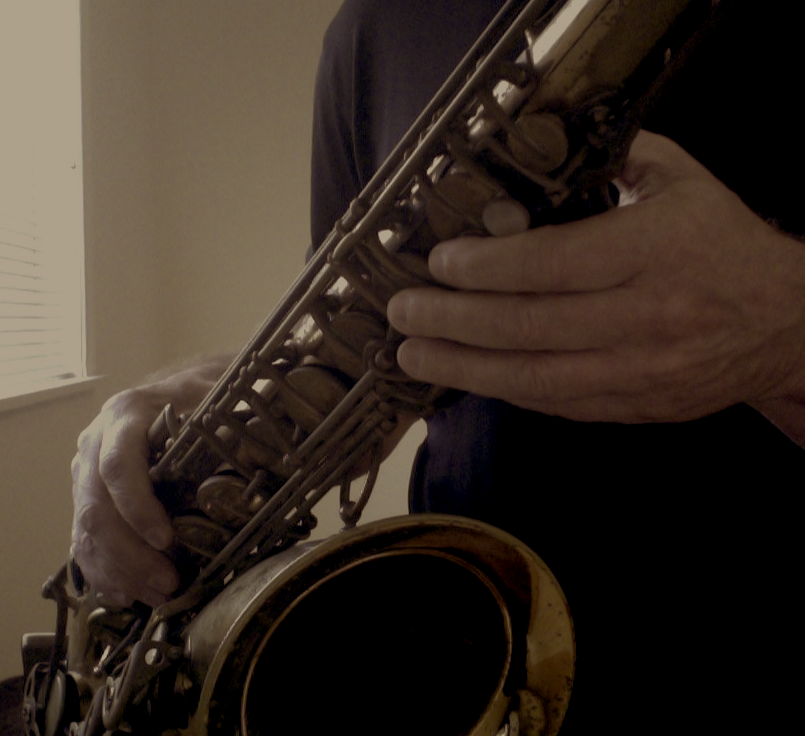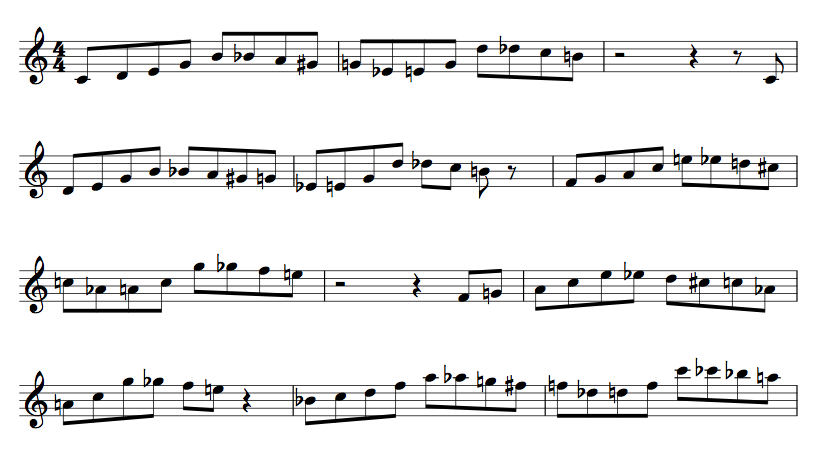Many years ago when I first met the great flutist and composer, James Newton, he impressed upon me the importance of a musician having a hobby. He felt that many musicians spend so much of their time and passion on music, that having a hobby was a great way to maintain balance and perspective as a human being.
His hobby at the time was studying visual art, painting in particular. He told me that besides giving him an enjoyable diversion from working in music, that ironically enough, it actually ended up expanding his conception of music. He learned this specifically through deepening his understanding of color and emotion, and brought that understanding to view his musical composition process in a new light.
I had no hobbies whatsoever at the time of meeting James, as I was so utterly consumed with playing, composing and studying music. But as a few years passed I did stumble upon a hobby that has not only helped me find balance as a human being, but also, has helped me tremendously as a musician: The study of foreign language.
Though I studied Spanish for a year in 9th grade, I really didn’t catch the foreign language bug until I was nearly 40 years old. At that time I was very interested in Bulgarian folk music, so I took a trip over there to hear this beautiful music first hand. What ended up happening was that I fell in love with the sound of the Bulgarian language. It seemed to so much reflect the sounds of the music I loved so much.
So when I returned home, I began to teach myself Bulgarian. I was totally shooting in the dark with my study, as I had no idea how to learn another language. But eventually I became conversant, and at one point, after much study and travel to Bulgaria, virtually fluent.
The benefits I gained as a musician from the process of studying another language became immediately discernible (I’ll talk more specifically about this below). I decided to tackle another language. I chose Russian, as it is in the same language family as Bulgarian (Slavic) and it uses the same alphabet (Cyrillic).
Russian was an even more challenging language for me to learn than Bulgarian, but it opened up my ears, mind and musicality even more. I was hooked.
To make a long story short, I ended up studying Spanish fairly extensively, and am currently working on improving my fluency in Brazilian Portuguese (my wife is Brazilian). Bulgarian, Russian, Spanish and Portuguese are languages that I’ve spent enough time with to become conversant to fluent in (as long as I stay in practice).
But I’ve also “visited” other languages just for fun: Estonian, Romanian, Eastern Armenian, to name but a few. I never had any intention of becoming conversant or fluent in these languages. I studied them purely out of curiosity, often rising from how pleasing the language was to my ear, or how interesting the grammar was. More like a taste test than a complete meal.
Every time I approach a new language, my musical skills are enhanced and broadened once again. Here are some of the benefits of studying a foreign language for musicians:
- You greatly improve your ear-Language is sound turned into meaning. When studying another language, you learn to hear high degrees of subtly in sound. In short, your ability to hear and process sound becomes more sophisticated, richer. Everything from intonation, color and shape become clearer to you. This translates right into your musical activity.
- You learn to create the physical gestures to produce new sounds-If you are to be understood in any language, you must learn to manipulate your vocal mechanisms (including, mouth, tongue, throat, jaw) to produce sounds in a different way. If you play a wind instrument or sing, this helps you tremendously to gain even greater control and insight into producing sound on your instrument. (It helps with your sound conception even if you don’t play a wind instrument.)
- You broaden your rhythmic conception-Every language has it’s rhythm. And even within every language there are many different rhythmic pattern, depending on region (accent, etc.) By letting yourself find the rhythm of speaking a new language, you expand your own ability to imagine and control rhythm and time.
- You deepen your understanding between sound and meaning-As you gain familiarity with a new language, you dramatically increase your capacity to turn sound into meaning. That’s the same skill you need to play well, whether as an improviser or as an interpretive musician.
- You learn to think way outside the box about structure and meaning-One of the first things you come face to face with when you start learning another language is how different the structures of the language are than your native language: Grammar, syntax, idiomatic expressions are but a few of the ways your sense of logic is challenged. Again, this opens your thinking up even more as a musician.
- You become better at improvising with new material-When you converse, you’re improvising. Learning to converse in a new language means learning to be able to take still unfamiliar material and express ideas, to communicate. This helps your brain immensely when it comes to improvising music with new ideas and material. In essence, you learn how to absorb and use new material faster, in more meaningful ways.
- You get more comfortable being wrong-If you converse in the language you are learning, you’re going to make mistakes. Lots of them. You simply stop flinching or feeling bad when this happens. If you take that attitude and skill into your music making, you open yourself up to great possibilities.
- You improve your overall brain fitness-All of the above keep your brain working in novel ways, which helps you to stay sharp for the rest of your life. Working memory (the capacity to hold and work with various pieces of information at one time) is crucial for language learning. (It also comes in pretty handy in making music.) My working memory improved remarkably when I started studying languages.
- Pick a language that really appeals to you-This can either be because of the sound of the language, love and interest in the culture, and more. If you have genuine interest in the language you’ll always enjoy learning more. And don’t think you need to become conversant or fluent to gain some of the great benefits I’ve listed above. Don’t worry about how “useful” the language is. Let your interest be your guide.
- Start with an “all audio” language course-Don’t start reading in the new language at the start. All you’ll do is bring your english speaking sound limitations to the language. Instead, learn to really hear and reproduce the sounds of the language. Pimsleur self-study language courses are an excellent option for this.
- Sing, sing, sing-Learn songs as soon as you can in the new language. This will help you produce the sounds, as well as deepen your sense of meaning with the words.
- Study grammar and structure-After you’ve spent some time just playing the new language by ear, invest some time in learning grammar and writing. You can either take a course in the community, or find a self-study course well suited for this purpose.
- Watch films-Watching a film in the new language (with subtitles, of course) will significantly increase your understanding of all aspects of the new language.
- Speak-If you can find a friend who speaks your new language, practice as much as you can with him or her. If not, consider finding an online community of other speakers and learners of the language to practice with. Remember, don’t be afraid of making mistakes. If you have a chance to travel to the country where your chosen language is spoken, you’ll find that the locals are gracious, helpful and flattered that you are making an attempt at learning their language.



